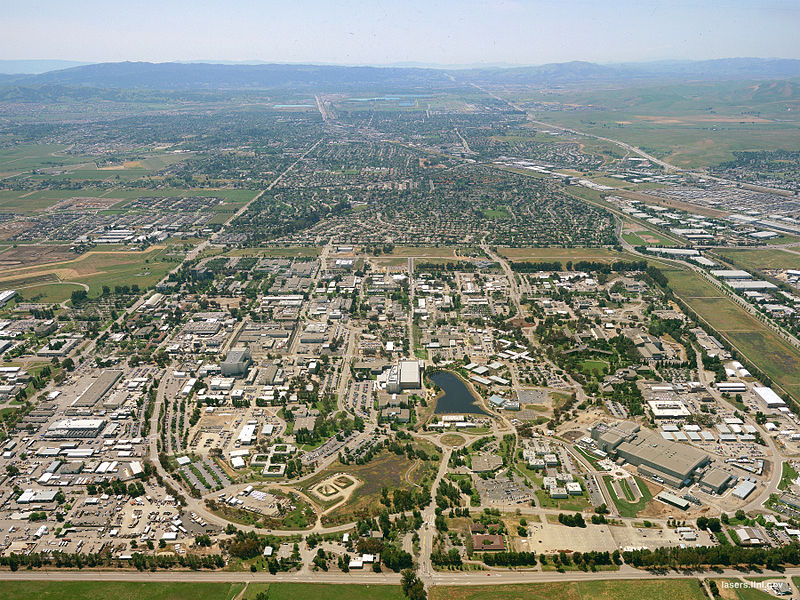 |
| Lawrence Livermore National Laboratory photo courtesy of wikimendia |
In December 2002, LLNL completed an Environmental Assessment (EA) which found no significant environmental impact (FONSI) created by construction of a high security high security biological lab. As this blog has noted before, a FONSI means that LLNR did not need to complete a full Environmental Impact Statement (EIS) and could proceed building the facility, which it did. Tri-Valley Cares sued to enjoin construction of the facility stating that the EA was incomplete in that it failed to include the environmental consequences of a potential terrorist threat. The Department of Energy (DOE) stated that there was no need to do this. The trial court granted summary judgment for DOE and Tri-Valley Cares appealed. While that case pended the Ninth Circuit ruled in San Luis Obisppo Mothers for Peace v. Nuclear Regulatory Commission (2006) that threat of a terrorist act could not be categorically denied as an environmental consideration. The Ninth Circuit remanded Tri-Valley Cares to DOE to determine what effect, if any, a potential terrorist attack would have.
DOE, reconsidered the situation and added a "loss of containment" scenario which considered the potential environmental impact if there was a loss of the containment of the material in BSL-3. Tri-Valley Cares disputes DOE's reasoning using what this blog calls the Katy Perry rule:
In her song, Hot 'n Cold Ms. Perry states, "You change your mind like a girl changes clothes...you overthink [and] always speak cryptically [therefore] I should know that you're no good for me." Similarly, witnesses who later change their mind are unreliable.Tri-Valley Cares argues that the containment scenario violates DOE policy. However, the Katy Perry Rule doesn't really apply to agency rulemaking. The Court explained that agencies are not bound by their own internal policies in rulemaking actions and that agencies are free to except the opinions of their experts over others.
Judge Armstrong granted summary judgment for DOE. The case is Tri-Valley Cares v. U.S. Department of Energy No. C 08-1372 and the opinion is below the jump.
Tri-Valley Cares v. U.S. Dept of Energy MSJ
No comments:
Post a Comment